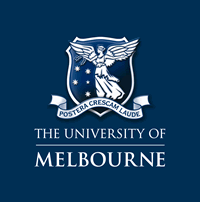Melbourne supervisor: Prof Andrew Brooks; Department of Microbiology and Immunology, Doherty Institute for Infection and Immunity, University of Melbourne
Bonn supervisor: Prof Martin Schlee; Institute of Clinical Chemistry and Clinical Pharmacology, University Hospital, University of Bonn, Bonn, Germany
Natural killer (NK) cells are an important component of the innate immune system. Upon activation, NK cells have the potential to lyse damaged or infected cells as well as to secrete an array of inflammatory cytokines and chemokines which may act to both control infection and/or recruit cells to the site of activation. Unlike other major lymphocyte subsets which typically sense infection or cancer through the engagement of a clonotypic receptor, the activation of NK cells is regulated by signals received from a diverse array of both activating and inhibitory receptors. Since the cytotoxic response of NK cells requires recognition of host proteins, the majority of research has focussed on their response to either transformed or virus-infected cells. However many bacteria also have the capacity to infect mammalian cells raising the potential that NK cells may impact their pathogenesis, particularly through the secretion of cytokines such as interferon-gamma. This project aims to define the molecular mechanisms used by NK cells to sense bacterial infection and explore the potential of bacteria to subvert these processes. The Melbourne component of the project will assess how distinct intracellular bacterial infections stimulate or evade NK cell responses. The Brooks laboratory has expertise in NK cell receptor biology and has developed CRISPR/Cas9 -based methods to use gene editing to define the key mechanisms responsible for NK cell activation in diverse settings. The Schlee laboratory at Bonn University uses sophisticated approaches to define how cells sense foreign nucleic acids to better understand the nature of the very initial response to infection. Using these same models of bacterial infection, the Bonn arm of the project will define how these distinct infections interact with the diverse array of intracellular nucleic acid sensing receptors and then how this impacts crosstalk between the infected cell and NK cells. Understanding of the pathways by which bacterial infection modulates cross talk between infected cells and NK cells may lead to the identification of novel ways to enhance NK cell responses not only to bacteria but to viral infection and cancer as well as providing a pathway to develop therapeutic approaches to effectively manipulate the innate immune response. The first two years of project will be based in Melbourne before shifting to Bonn for a further 12 months.
Academic entry requirements
We welcome applications from all countries and nationalities. To be eligible for entry you are expected to have successfully completed your BSc and MSc degree (or close to completion) in Biology, Immunology, Molecular Biology, Biochemistry, or related fields and achieved an overall average of greater than 80%. This is a minimum entry requirement and serves as a guide only. You are also required to have completed a research project that accounts to at least 25% of one year of study and must possess excellent English language skills. Additional qualifications and/or experience in a relevant field, reference reports and scientific publications will also be taken into consideration.
Funding includes:
- Stipend $31,200 per year pro rata (2021 full-time study rate, includes sick pay, maternity and parental leave), for up to 3 years with a possible 6-month extension. - The living allowance may be indexed annually and includes limited sick pay, maternity and parental leave.
- 100% fee remission up to $110,000 - One-off relocation grant of up to AUS$3,000 for international students relocating to Melbourne
- Insurance
- Travel costs for exchange to Bonn
How to apply: Candidates who meet the minimum entry requirements are asked to submit the following documents via email:
1. Letter of motivation
2. CV in German or English language
3. Electronic copy of your full BSc and MSc University transcripts (or equivalent) in German or English language
4. Evidence of English language competency (study abroad, IELTS, TOEFL, or similar)
Contact/application to: [Email Address Removed]

 Continue with Facebook
Continue with Facebook



